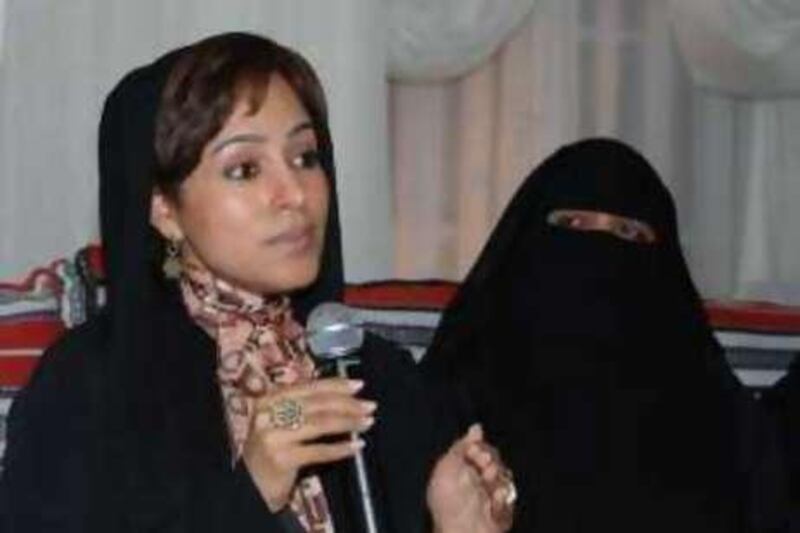HATTA // The UAE's first cross-cultural community centre catering to the social, health, financial and educational needs of both nationals and expatriates is to be opened in Hatta. The Community Development Authority (CDA), created two months ago under the umbrella of the Dubai 2015 strategy, aims eventually to have 22 community centres across the emirate, with the second opening in Dubai. Dr Maryam Matar, director general of the CDA, said Hatta was chosen to have the first centre because of its lack of social support.
"We want to provide a comprehensive service centre that caters to all needs," she said. "If there are services we cannot provide, we will do our best to refer people to the relevant bodies." Taking a single-parent family as an example, she said: "We will provide counselling, help the mother to follow the child's progress through school and provide housing that is close to her family. We are taking all social aspects into consideration. "The people who are coming to us are people who have needs in their life," she said. "This is why we have respect towards them and want to help them. They are not coming for a luxury."
Speaking to Hatta residents at the weekend, Dr Matar said the decision to open the centre followed a study involving 2,500 families that assessed the area's needs. The Hatta centre will run a pilot programme in the first half of 2009 and, if results are positive, it will be up and running fully by the second half of the year. Dr Matar noted that community centres were not a new concept in the West, but abroad they tended to be geared towards single issues, such as rehabilitation, pensioners or young people. The Dubai centres would be more comprehensive, caring for all these issues under one roof. The families questioned in the survey provided positive feedback on the way of life in Dubai. "We found that everyone here loves Dubai," said Dr Matar. "Everyone wants to work together, and we want to make it the best city in social development and social care." The role of expatriates is also integral to the centre's growth and success, she said. "We need expats to help us with their expertise in social development and teach us best practice." Mohammed Murad, chief of performance and excellence at the CDA, said the results for social development came slowly, and people would need to be patient to see a change. "Social development is not something that happens over one or two years," he said. "It can take as much as 20 years, but we can achieve it. We are crossing the hurdles much faster here." The CDA hopes to streamline and strengthen the social help currently available. One focus will be volunteers, with the creation of a system in which they register their skills. "We want to make volunteering more structured and make use of the skills available," said Dr Matar. "We want to ensure that people do not volunteer in areas where they will do more harm than good." The issues of disability and special needs are also being addressed by the CDA. While some organisations in Dubai are making people more aware of those issues, the city is still not considered accessible enough for the disabled. "We want to make Dubai more user-friendly for everyone, including the disabled," she said. "We want to make it the most accessible city in the world." Before joining the CDA, Dr Matar, a family physician, helped develop the Dubai 2015 strategy and was assistant under-secretary at the Ministry of Health. * The National






